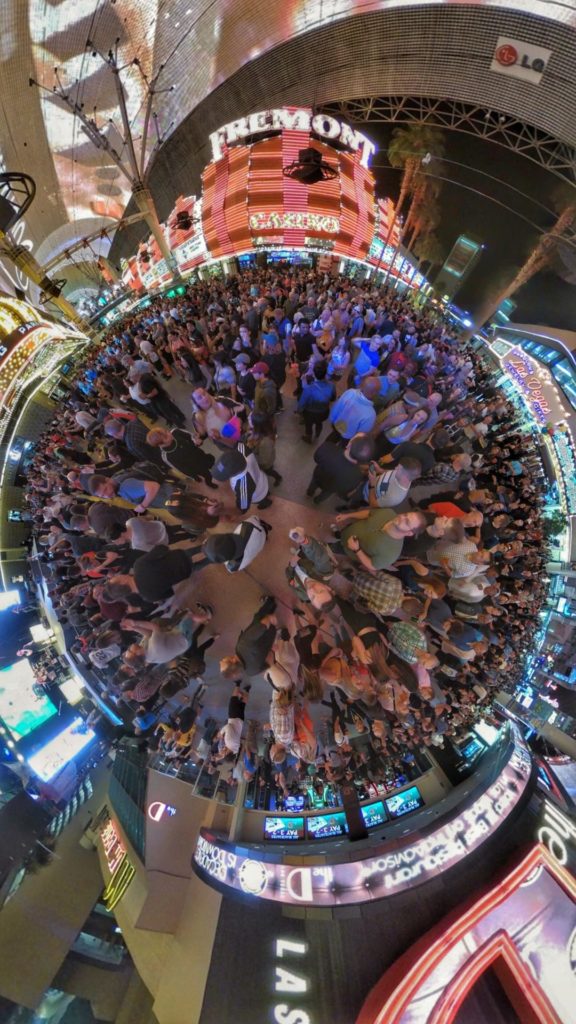We have all come to know and love Emotional Intelligence. Just in case you have been living under a rock for the past few years, emotional intelligence is the capacity to manage your own emotions as well as recognize and understand emotions in others.
I am not knocking Emotional Intelligence. It seems to be an incredibly popular buzzword and there are plenty of articles out there discussing this topic. Practicing these skills as a manager is important, and I do believe in it. I am just tired of every time some CEO makes a decision a companion article pops up describing how that decision reflected his vast reservoir of Emotional Intelligence.
My writings encompass a constant quest to define what steps I can take to practice lifelong continuous improvement in my life and career. Part of this effort includes defining what it really means to be an Engineer as a concept, not a title or job description.
It may not shock you to discover that many Engineers would not score high on a ranking of Emotional Intelligence. That is OK. Most companies do not hire Engineers to create warm and fuzzy feelings in other human beings.
Engineers are hired to create solutions to problems. That is easy, but so are Developers and Business Analysts. What sets an Engineer apart is the ability to stand on their own two feet and come up with a unique and efficient solution to a problem.
This includes a propensity to think, a tendency towards laziness, and an ability to recognize and contribute in an indirect manner.
You may notice that none of that description had any hint of skills around understanding other people’s feelings.
While hiring an Engineer with a high aptitude for E.I. is a good thing, it typically is not one of the primary measurements that gets used in the hiring process.

So what do I look for when hiring a new Engineer? What sets apart an “Engineer” vs a “developer” or “programmer”? While there are a number of skills and abilities that separate these roles, one key qualification is an ability to connect the dots in ways that aren’t directly obvious.
I am going to refer to this concept as Situational Intelligence.
Situational Intelligence is an Engineer’s ability to seek out information in the world around them and apply it towards the most efficient solution possible for any problem.
This discussion can be confusing without some definition. Both Developers and Engineers create solutions. However, a Developer needs much more direction and structure in order to achieve success on a project.
From a management standpoint, Developers require more effort in terms of project management, but less effort in terms of people management. Good Developers will produce the desired outcomes as long as the project definition and requirements are solid and appropriate direction can be provided throughout the project.
Engineers are the opposite. They require much lower direction from a project management standpoint beyond big picture decisions, but often require more people management skills to keep them headed in the right direction. Remember, computers don’t have feelings. Engineers do, even if they appear to be borg-like in their attitude and communications.

Therefore, while Emotional Intelligence is huge for the Engineering Manager, not so much for the Engineer.
However, this exposes a critical gap for an Engineer. How does an Engineer know that the solution they are presenting is the appropriate solution for the business and customers of that business?
To the best of my knowledge, there is no concise terminology that attempts to capture the ability for an Engineer to understand the world around them and apply that knowledge in an appropriate manner.

A simple example can be used to illustrate this concept.
Consider someone in the role of a secretary charged with gathering information for a board meeting. They are provided with the business priorities for the meeting and asked to gather appropriate information.
What needs to happen next?
She or he will not be successful unless they can complete the following:
- Gather the direct and indirect data for the topics on the agenda
Some of the data is simple and straightforward. What were the sales figures from last quarter and how many units shipped? These can be gathered with some straightforward queries to the accounting team. However, someone with a high Situational Intelligence also knows that in the past few board meetings there have been issues in shipping with getting units out on time. They also see a drop in quarterly revenue. Therefore, they also query the shipping department to gather data for on-time shipments and ping the sales team for data around sales orders and quotes.
- Present the data in a clear and concise format
Sure, providing 8 pages of spreadsheet data stapled together is one way to present this data. Someone with high situational intelligence would take the summary data from the last pages and generate a new cover sheet with that data. They might add a few extra averages and sums from the data onto that page. This allows others to quickly see the aggregate, important data without spending a lot of time searching. The eight pages would also be included so that if the need arose the board members could drill down and see where those numbers came from.
- Call out risks and anomalies
As part of the data gathering, the data inquiries to individual departments can include queries to gather roadblocks and issues. That is really good information on a team-by-team basis. Someone with high situational intelligence should use a combination of previous experience and intuition to look at the data at an aggregate level and draw some additional conclusions across the overall data. Maybe shipping was behind not due to their own roadblocks, but because Engineering hadn’t released the product to ship because they were waiting on confirmation of feature requirements form the sales team.
All of these can easily be translated into the Engineer vs Developer discussion. An Engineer needs to work to understand how users want the feature to work and do some investigation on their own to build appropriate workflows and interfaces to achieve success from the customer’s perceptual standpoint. An Engineer needs to review best practices for a data entry screen and look at other past examples and external models, not just build whatever they think they are given. An Engineer must have an ability to look for edge cases and risks to identify where these workflows could have problems and address them before they blow up when a customer is using the product.
Maybe another way to describe this concept is that I want Engineers with street smarts.
“Street Smarts” is a colloquial term similar to Situational Intelligence. Someone with street smarts has a capacity to understand the world around them in a way that allows for more efficient operation than other people. It calls out an ability to handle potential difficulties or dangers in an urban environment.
This is not possible unless that person takes the time and initiative to learn how things work at a deep level. Someone with street smarts definitely understands the reasons behind why certain people choose to follow certain behavioral patterns. These people also also have a sense of the mood of the general population and know which way the wind is blowing. They can sense trouble and also opportunity where others would simply miss the warning signs.
These same principles apply in the workplace in regards to Situational Intelligence.
Someone with this ability looks beyond the obvious and connects some of the dots that are not so obvious when creating solutions. This is an ability to not just consider the question: “How would I use this solution?”
This is an ability to consider the much wider query of: “How would everyone else use this solution?”
That can be a very difficult thing to do! It is a question that covers a lot of area. It implies lots of edge cases. It infers an ability to do a 360 review of the solution looking for gaps.
It is what I expect from an Engineer.
At the end of the day, if you want to be an Engineer on my team you need to work on your own Situational Intelligence. Try and find ways to answer the unasked questions and have answers before they are needed. Work on growing beyond the narrow vision of it works on my machine and show how it can work successfully on every other machine out there.
If you want to look at in another light – then try and make me life easier as your manager. I have a lot to do and think about and if providing direction on your project is not on that list then that is a good thing.
Just like Emotional Intelligence, everyone has the capacity to display and grow their Situational Intelligence. It is a range and you can improve where you fall on that spectrum. You can move the needle and get better at this skill if you so choose. Good luck in your journey.
Thanks for reading!



Comments are closed, but trackbacks and pingbacks are open.